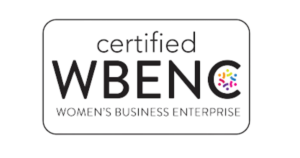Positioning Yourself for a New Job
Over the past few months, American workers have left their jobs in record numbers in what’s been dubbed as the Great Resignation. People all over the country and across industries are searching for new job opportunities and even new careers during this significant season of change. Many factors, including work-life satisfaction, pay and burnout, are driving the exodus.
While many employees are now in the “driver’s seat” when it comes to asking for more flexible schedules and higher wages from either new or current employers, many still need to put their best foot forward if they want to land their dream job or everything on their must-have list. If you’re considering a career move this year, preparation is key, especially before and during the interview process. Here are some ways to get ahead of the game, appeal to hiring managers and make sure you’re going to a right-fit employer:
Before the Interview
Amplify Your Personal Brand: Before you even begin to interview with potential employers, marketing yourself online on professional platforms like LinkedIn is a must. Your visibility matters, so make sure everything is up-to-date and your strengths are highlighted.
Think of your LinkedIn profile like a value proposition; it should summarize why a company should hire you, and it’s a promise of what you’re able to deliver to them as a potential future employee. It should showcase measurable achievements that show how you will help make their company bigger, better and stronger.
Level Up Your Resume: Resumes are still relevant. In fact, they’re your foundation when it comes to job hunting. Like your LinkedIn profile, the information on your resume should be current and tailored to the specific role you’re applying for. Our executive coaches work with clients on finding the right keywords and buzzwords to include in their resumes and profiles. One way to do this is to look through open positions and compare descriptions so you can find patterns and themes. Then, incorporate those words in your resume and cover letter.
Use Your Network: Pandemic or not, your network is your net worth. Ideally, you want to build it before you need it and actively contribute to your connections on an ongoing basis versus just reaching out when it benefits you. Not only will you be a resource for others, but you’ll also be top of mind for any opportunities they know of or have.
If you want to grow your network, you have to be thoughtful and strategic. At ON Point Next Level Leadership, we offer Signature Leadership Summits, which are great networking opportunities for top-performing corporate leaders. Attendees develop their leadership skills while also forming long-lasting relationships. We continue to see Summit alums stay in touch, help each other out and celebrate one another’s successes.
During the Interview
Know Your Stuff: An interview is nothing more than a sales presentation. You need to show up prepared and have talking points. You should be able to talk about everything on your resume as if it happened yesterday; nothing should blindside you.
You don’t ever want to come across as a threat, so it’s also important to research the person who’s going to interview you. If they ask where you see yourself in five years, don’t list their job title as your destination! There’s only one way to answer this question: “I see myself here in a position where I can continue to bring value and grow.”
Come With Questions: Not being prepared with questions for the interviewer is not an option. These will change based on the interviewee and where you are in the interview process; questions in the first round addressed to a human resources manager will be very different than what you might ask a potential direct manager. Either way, asking questions is mostly about building relationships and showing you’re interested in the particular company and its people.
Be careful not to ask someone a question that’s beyond their pay grade. Make sure they’re softball questions, like what their experience is and what they like about where they work.
Have a Number in Mind: Talking about salary can be intimidating on the spot, so it’s helpful to have done your research in advance, taking into account your experience, what you’re currently making and what others in the role you’re looking at are making. If you’re asked about a desired salary, always speak in ranges instead of listing finite numbers. And remember, don’t end your salary discussion on numbers; wrap it up by expressing that you’re more interested in learning how you can help the company and can work out salary details later. This will help keep the conversation flowing and won’t automatically rule you out based on your answer.
If you’re considering a new job or career switch, it’ll take time and effort. From updating your resume and professional profiles to investing in your network to being prepared for all questions, it’ll be worth it in the end when you find the right fit. With these tips, you’ll be well equipped for any and all opportunities that are on the horizon. Good luck!





